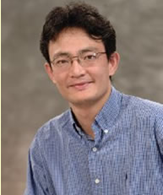
University of California, Los Angeles, USA
Yunfeng Lu is a Professor of the Chemical and Biomolecular Engineering Department at University of California, Los Angeles, since 2006. He received his Ph.D. degree of Chemical Engineering from The University of New Mexico (Prof. C. Jeffrey Brinker group). His honors and awards include Outstanding Scientific Accomplishment Award (1998), Outstanding Oversea Chinese Young Investigator Award (Chinese National Science Foundation, 2001), Tulane Presidential Early Career Development Award (2003), Presidential Early Career Awards for Scientists and Engineers (2005), Early Career Scientist and Engineer Awards (Department of Energy, 2005), et al. His current research interests are the design of nanomaterials for energy storage and conversion. He works extensively on supercapacitors, lithium-ion batteries, lithium-metal batteries, flow batteries, intermediate-temperature fuel cells, and methane conversion. He is also interested in the delivery of proteins and nucleic acids for therapeutic applications, including the treatment for acute intoxication, metabolic diseases, viral infection, and cancer. Recently, he also developed a CNS (central nervous system) delivery technology with high efficiency and biocompatibility. He has published more than 200 SCI papers in international journals.
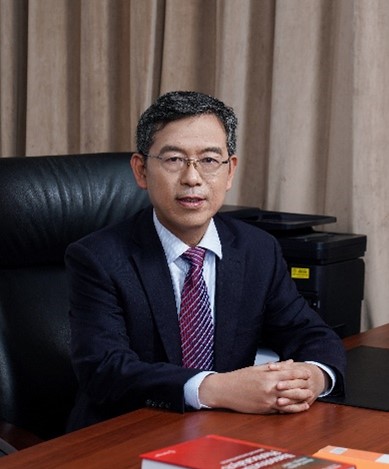
Shanghai University of Electric Power, China
Prof. Hexing Li is the president of Shanghai University of Electric Power, China. He is also the directors of Chinese Education Ministry Key Laboratory and Chinese Education Ministry International-Joint Laboratory on Resource Chemistry in Shanghai Normal University, China. He received his Ph.D. degree of Chemistry from Fudan University in 1997. His research interests focus on the photocatalysis for environmental purification, clean energy production and green chemistry development. He serves as the Associated Editor of Appl. Catal. B Environ. Up to now, he has published more than 200 papers, 50 patents and 3 English monographs. Now, his citation number is 20060 and his H index is 85.
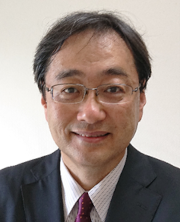
Osaka University, Japan
Hiromi Yamashita has been a professor of Osaka University since 2004. He received PhD degree from Kyoto University. He was an assistant professor of Tohoku University, an associate professor of Osaka Prefecture University, and an invited professor of University Pierre and Marie Curie, Kyoto University, Shanghai Normal University, Shanghai University of Electric Power. He has been the president of Asia and Pacific Association of Catalysis Societies (2019-), the president of Catalysis Society of Japan (2019-2020), the member of Academia Europea (2019-), the honorary fellow of Chinese Chemical Society (2021-), the editor of Applied Catalysis B (2012-). He received awards from several societies such as Catalysis Society of Japan, the Japan Petroleum Institute, Japanese Photochemistry Association, the Japan Institute of Metals and Materials, Japan Society of Coordination Chemistry. His research interests include the design of single-site photocatalysts and nanostructured catalysts.
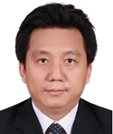
East China University of Science and Technology, China
Weihong Zhu is a full Professor of East China University of Science and Technology since 2004. He received his Bachelor degree of Chemistry (1992) from Nanjing Normal University, Master degree of Organic Chemistry (1995) from Nankai University, Ph.D. degree of Applied Chemistry (1999) from East China University of Science & Technology (ECUST), China. He worked in AIST Central 5, Tsukuba (Postdoctoral, 2001.10-2003.4) and in Tsukuba University (visiting professor, 2004.7-2005.3), Japan. He has received several awards, such as NSFC for Distinguished Young Scholars (2013), and Cheung Kong Distinguished Professor by the Education Ministry of China (2015). His current research interests are focused on functional chromophores, including fluorescent sensors, photochromism, and metal free solar cell sensitizers. He has published more than 330 SCI papers in international journals with H-index of 78.
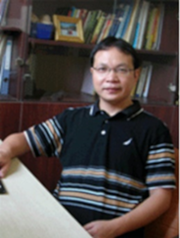
Shanghai Jiao Tong University, China
Fuyou Li is a Professor of the School of Chemistry and Chemical Engineering at Shanghai Jiao Tong University since 2006. He received his Bachelor (1995) and Ph.D. (2000) degrees of Chemistry from Beijing Normal University, China. As a postdoctoral researcher, he joined Prof. Chunhui Huang’s group in the College of Chemistry at Peking University (2000-2002). After he worked at Peking University (2002-2003), he joined Fudan University in July 2003. He became a Professor of the Department of Chemistry at Fudan University since 2006, and then joined Shanghai Jiaotong University at 2022. He is fellow of Royal Society of Chemistry (FRSC). His honors and awards include Distinguished Young Scholar Award (NSFC, 2008), Second Award of National Natural Science (2003), Young Chemists awards, (Chinese Chemical Society, 2003), and Award of the 6th Young Talents of Science and Technology of Shanghai (2012). His research interests focus on luminescent materials and biomaging, including luminescent chemodosimeters/chemosensors for bioimaging, and multi-functional nanomaterials for theronastics. He has published ~260 papers in peer-reviewed journals, and was recognized as High Cited Researchers by Clarivate Analytics (H-index 102). He is the inventor on more than 50 patents (US, Chinese and International).
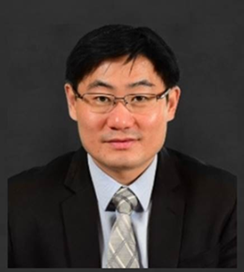
National University of Singapore, Singapore
Professor Wei Chen is currently a Full professor in both the Chemistry Department and Physics Department at the National University of Singapore (NUS). He received his Bachelor degree in Chemistry from Nanjing University (China) in 2001 and his PhD degree from the Chemistry Department at NUS in 2004. His current research interests include molecular-scale interface engineering for organic, graphene and 2D materials based electronics and optoelectronics, and interface-controlled nanocatalysis for energy and environmental research.
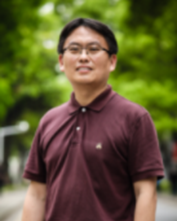
University of Shanghai for Science and Technology, Shanghai, China
Guisheng Li is a Professor and the associate dean in School of Materials and Chemistry at University of Shanghai for Science and Technology. He received his Ph. D. in Science from The Chinese University of Hong Kong in 2008. His research interest focuses on the design and synthesis of catalysts for green environment and energy conversion. He has published more than 50 journal articles. He is the Managing Editor of PhotoMat.

John Wiley & Sons, Inc.
José Oliveira obtained his B.Sc. (Hons) and Ph.D. at the University of the Witwatersrand, Johannesburg. Before joining Wiley in 2001, he worked at the University of Antwerp. He is the Editor-in-Chief of Small.
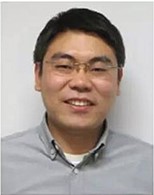
John Wiley & Sons, Inc.
Guangchen Xu obtained his B.Sc. and Ph.D. (Hons) from the Beijing University of Technology. He spent a year at Michigan State University as a visiting scholar. Before joining the Wiley team in Beijing in 2011, he was an Assistant Professor at Beijing University of Technology.

John Wiley & Sons, Inc.
Jing Zhu completed her Ph.D. from Shanghai Jiao Tong University in 2011, during this period, she studied and worked in Guelph Food Research Centre, Agriculture and Agri-Food Canada as a joint Ph.D. student for 2 years. Jing joined Wiley in July 2011 as a journal Editor and is based in Wiley’s Shanghai office.
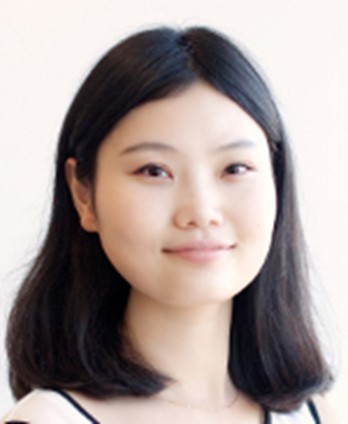
John Wiley & Sons, Inc.
Muxian Shen studied chemical engineering and material science at East China University of Science and Technology in Shanghai, China. After obtaining B.Sc. and P.hD. degrees from that institute, she worked for Nature Research Group before joining Wiley. She is based in Shanghai.
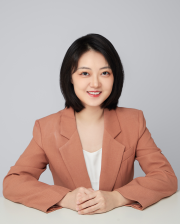
John Wiley & Sons, Inc.
Daisy is based in Wiley's Beijing office and brings 10 years of experience in the publishing industry. She began her career as a Book Editor, and in 2019, she joined Wiley initially as an Editorial Assistant, taking care of journals within the "Advanced Materials" and "Small" families. In 2021, she transitioned to Journal Publishing Manager, overseeing a portfolio of China Materials Science partner journals. Since 2024, Daisy has served as a Publisher, managing a group of journals in the Physical Sciences.